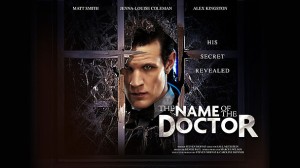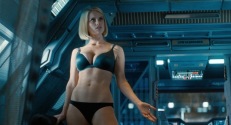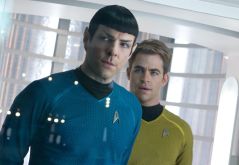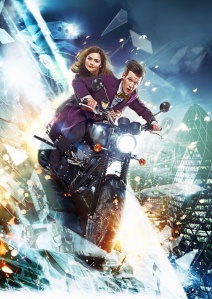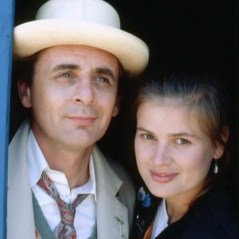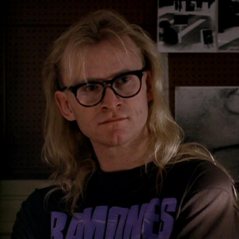So begins what is perhaps the longest wait for television fans across the globe. Forget Locutus of Borg’s cliffhanger, that was so twenty years ago (twenty-three to be exact, scary how long ago The Next Generation was, but hey, it’s held up remarkably well).
But let’s take a step back for a minute, and first take a look back at how we got to this point. Series 7 started back last autumn, with the final five outings for the Amy and Rory. With casting often hard to keep secret in this day and age, there was no surprise that they would be leaving, and the announcement that Jenna-Louise Coleman would be replacing them was made before episode one was broadcast. Episode one, better known as Asylum of the Daleks to you and me, didn’t disappoint, as it featured Daleks new and old aplenty (even the special weapons Dalek if you squinted hard enough), a nice reference to the shows history where Daleks who had survived his defeats were kept in intensive care, and Jenna-Louise Coleman popped up as well.
Clara boards the TARDIS earlier than expected?, they’ve kept that hidden from us, well done BBC. Nope, wait. She’s a Dalek. And now she’s dead. Touche Steven Moffat, touche!
This rather unexpected turn of events was kept on the back burner while we enjoyed Amy and Rory’s three penultimate outings before their eventual leaving the TARDIS in The Angels Take Manhattan. A teary affair for many in which, for her final act of onscreen heroism, Amy finally redeems herself by choosing Rory over the Doctor, no going backsies.
Well, narratively anyway, considering whatever was stopping the Doctor from returning was localised only to New York, and both Ponds got rather experienced at travelling across the States in Day of the Moon, but as fun as they were, I can’t argue with the fact their particular stories had been told.
Next came the mid-season Christmas special, and another appearance from Jenna-Lousie Coleman. With the Ponds well and truly departed, it seemed we weren’t going to get any classic series style juxtaposition of companions from different parts of time and space (well, 21st century Britain at least). But we did get Clara back, at least for a while, before she too left us with the mystery of what exactly is going on here?
It has to be said however, Clara’s second death left us with a better beginning for the part two opener The Bells of Saint John. As much as I would have loved a companion that wasn’t from the 21st century (even if she was still from London), the (re)introduction of modern Clara added more mystery to the character that would keep us guessing through the rest of the series, than continuing from where The Snowmen would have left off, would have done.
And whilst I enjoyed the rest of the series, I have to say not as much as I was expecting. Considering it has been eighteen months since the end of season six, you’d think there would have been more time to polish it up a bit. Yes I know they’ve been busy planning for the show 50th in November, but surely the extra effort could have been spread throughout the whole year of the anniversary, not just the day itself. What with writing the BBC’s celebratory drama An Adventure in Space and Time, you’d think that Gatiss could have settled for just the one Doctor Who episode, but instead wrote both Cold War, and The Crimson Horror. Likewise new to Who writer Neil Cross who penned both The Rings of Akhaten and Hide. Protests as to the lack of female writers aside, it has to be said that one benefit the 13 episode seasons have over twentysomething American shows is the extra time they have to get the details right, something negated by having twice as many scripts to complete. The big let downs that got to us though, were the fact that the episodes were given a sense of epic proportions that they just didn’t have.
With such a great title, Journey to the Centre of the TARDIS seemed like it could have been so much more than just running through lots of corridors, and for a Neil Gaiman episode, Nightmare in Silver didn’t seem that nightmarish, but was perhaps aimed more at children scared of being abducted by newer and sleeker cybermen in the middle of the night.
Not that the second half was all bad, there were some interesting stories and great actors, not least in the aformentioned Hide. A genre twisting ghost story which, in true Doctor Who colours, was actually about something else all along, and featured a remarkable performance from Dougray Scott as a charming yet shy ghost hunter. Richard E. Grant, as always, is another great addition to the cast.
Where the series shined though, was in Saturday’s final episode, The Name of the Doctor. With a titillating title that had fans everywhere speculating, it was one that didn’t let down on the hype, and was the best Moffat season finale since he took responsibility for them (perhaps in part due to the fact that it hasn’t been an alternate timeline that gets wiped afterwards anyway). Minor quibbles would be left aside (we haven’t quite known Clara long enough for what seems like such a major part throughout the Doctor’s history) right from the beginning of the episode, and indeed the series, starting as we did on “Gallifrey a very long time ago”. Clara telling William Hartnell himself that he’s making a mistake by stealing the TARDIS was one of the two boldest moves made by the show since it’s return, the second coming right at the end with that introduction.
Perhaps the biggest troll to fans everywhere, but also the biggest relief for many who were dreading the loss of mystery, the Doctor told both Clara and the audience at home that “my name, my real name, that is not the point”. More than just the revelation however, there were also some nice little details, what could have easily been reminiscent of Malkovich Malkovich, the Doctor being inside his own timestream which contained shadowy graves in the background was a nice touch.
Introducing the omninous figure who apparently both is, and isn’t quite the Doctor, show runner Steven Moffat has here made a brave move that unlike his previous “alliance” storyline of every alien race ever joining forces, has to evoke the same sense of awe and anticipation from Doctor Who fans of all ages, new and old fans alike.
Even if you didn’t recognise that deep rich voice declaring that “what I did, I did without choice”, let alone know of his upcoming appearance in the 50th anniversary special, whether your jaw dropped due to the arrival of John Hurt as either actor or character (or both), it was nothing less than spectacular, and will ensure that the internet chat rooms and forums will be bursting with theories and ideas for the next six months.
And so we await the 50th anniversary with perhaps more questions than answers. Although we discovered the answer to Clara’s being impossible, her story can be far from over (I’m still waiting to find out who the woman in the shop was). More than this however, just who is John Hurt??
Adding to his list of iconic science fiction moments that go do in history, he is credited by the BBC as playing the Doctor, despite Matt Smiths insistence that he is isn’t, even though they are both in a place where “there’s only me here, that’s the point”. Only the Doctor, “the one who broke the promise”, and Clara as well actually, but that could be looking too much into it.
So who exactly is he? Fans have already been keen to point several things seen (or not) throughout the episode that may or may not be important. Firsty, despite being referenced previously in the series, Paul McGann’s eighth Doctor was missing from the clips of his past incarnations, although his only on-screen appearance is still stuck in a sticky web of joint ownership with FOX. The fact that Hurt’s costume bears a resemblance to McGann’s newer image for his latest audio releases has also been mentioned.
Was the naming of the Valeyard just something to put an extra smile on the face of classic fans, or was it introducing an older concept that newer fans will need to be aware of in the future? Or is he something new altogether, a missing incarnation made possible by the fact we’ve never actually seen a McGann/Eccleston regeneration??
Over the past several years modern television has come to embrace longer and longer and longer story arcs, something which has made Doctor Who perhaps the last bastion of what is an icon of science fiction and fantastical television, “To Be Continued…”
Taking it to whole new levels however, with no-planets or galaxies in need of rescue, no one on the brink of death, but with the history of a character loved by generations about to be re-written on the eve of his 50th birthday, “To Be Continued … November 23rd” is perhaps the cruelest trick ever to be played on TV audiences, past, present, and probably even future…

